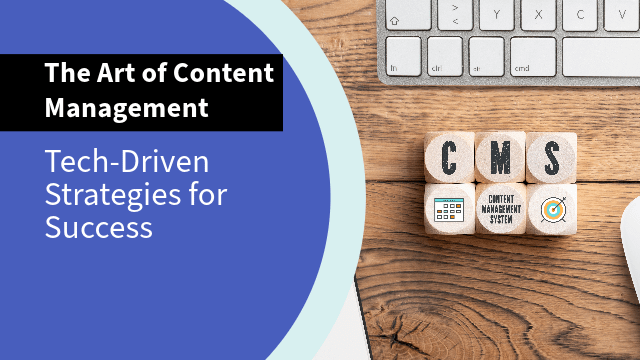Introduction
In today’s digital age, content management has become an art form, blending technology and strategy to deliver success in the online world. Whether you’re a seasoned content creator or just starting, understanding the nuances of content management is crucial. This comprehensive guide explores the strategies, tools, and techniques that make up the art of content management. Join us as we delve into the realm of tech-driven strategies for success.
Harnessing the Power of Content Management
Content management is not merely about organizing and publishing content; it’s about creating a seamless, engaging experience for your audience. Here’s how you can master the art:
Defining Your Content Strategy
To succeed in content management, start by defining a clear content strategy. This strategy should align with your business goals and target audience. Identify your unique value proposition and create content that resonates with your audience’s needs and preferences.
The Role of Technology
Embrace technology as your ally. Utilize content management systems (CMS) like WordPress, Drupal, or Joomla to streamline content creation, publication, and distribution. These platforms offer user-friendly interfaces and robust features to enhance your content management process.
Leveraging Data Analytics
Harness the power of data analytics to make informed decisions. Tools like Google Analytics and SEO analysis platforms can provide valuable insights into user behavior, helping you refine your content strategy for maximum impact.
Automation for Efficiency
Consider automating repetitive tasks with tools like Hootsuite for social media scheduling or email marketing platforms like Mailchimp. Automation frees up your time for strategic planning and creativity.
The Art of SEO Integration
SEO (Search Engine Optimization) is a fundamental aspect of content management. Integrate relevant keywords naturally within your content to improve search engine rankings and visibility.
Content Quality Control
Maintain high-quality standards for your content. Regularly review and update outdated information to ensure your audience receives accurate and valuable content.
Interactive Content
Engage your audience with interactive content such as quizzes, polls, and surveys. This fosters a sense of involvement and encourages social sharing.
Mobile Optimization
In an era of mobile-first indexing, ensure your content is optimized for mobile devices. Responsive design and fast loading times are essential for user satisfaction.
Content Distribution
Don’t just create content; ensure it reaches the right audience. Use social media, email marketing, and guest posting to expand your content’s reach.
User Feedback and Adaptation
Listen to your audience’s feedback. Adapt and evolve your content strategy based on their preferences and needs.
Frequently Asked Questions
Q: What is content management, and why is it important?
A: Content management involves creating, organizing, and distributing content online. It’s vital because it helps businesses connect with their audience, improve SEO rankings, and drive engagement.
Q: Which content management system (CMS) is the best?
A: The choice of CMS depends on your specific needs. WordPress is popular for its versatility, while Drupal offers advanced customization. Research and choose one that suits your goals.
Q: How can I measure the success of my content management strategy?
A: Use key performance indicators (KPIs) like website traffic, click-through rates, and conversion rates to measure success. Analyze data regularly to make improvements.
Q: Is SEO really important for content management?
A: Absolutely. SEO ensures that your content is discoverable on search engines, increasing visibility and attracting organic traffic.
Q: What role does user feedback play in content management?
A: User feedback is invaluable for refining your content strategy. It helps you understand your audience’s preferences and pain points, allowing you to create more relevant content.
Q: Can I manage content effectively without using technology?
A: While it’s possible, technology greatly enhances efficiency and scalability in content management. Utilizing content management systems and automation tools is highly recommended.
Conclusion
Mastering the art of content management in the digital age is essential for online success. By combining strategic planning, technology, and a deep understanding of your audience, you can create and manage content that resonates, engages, and drives results. Remember, the journey to becoming a content management maestro is ongoing, filled with experimentation and adaptation. Embrace the art and science of content management, and watch your online presence flourish.

